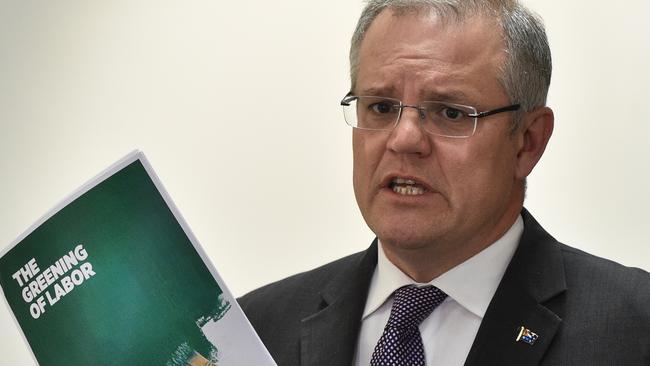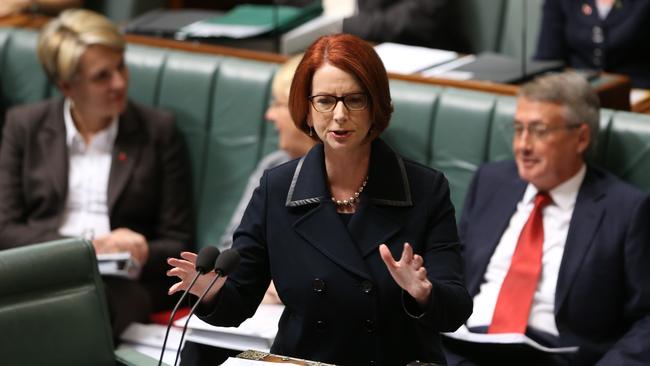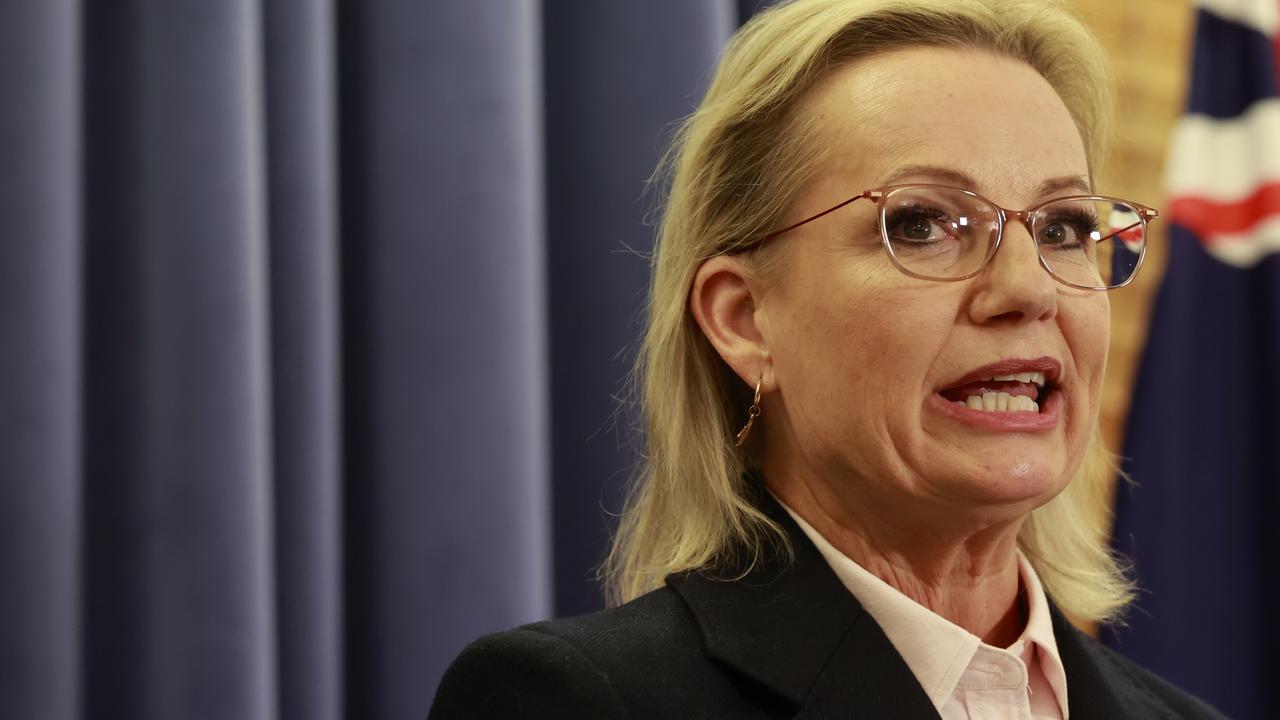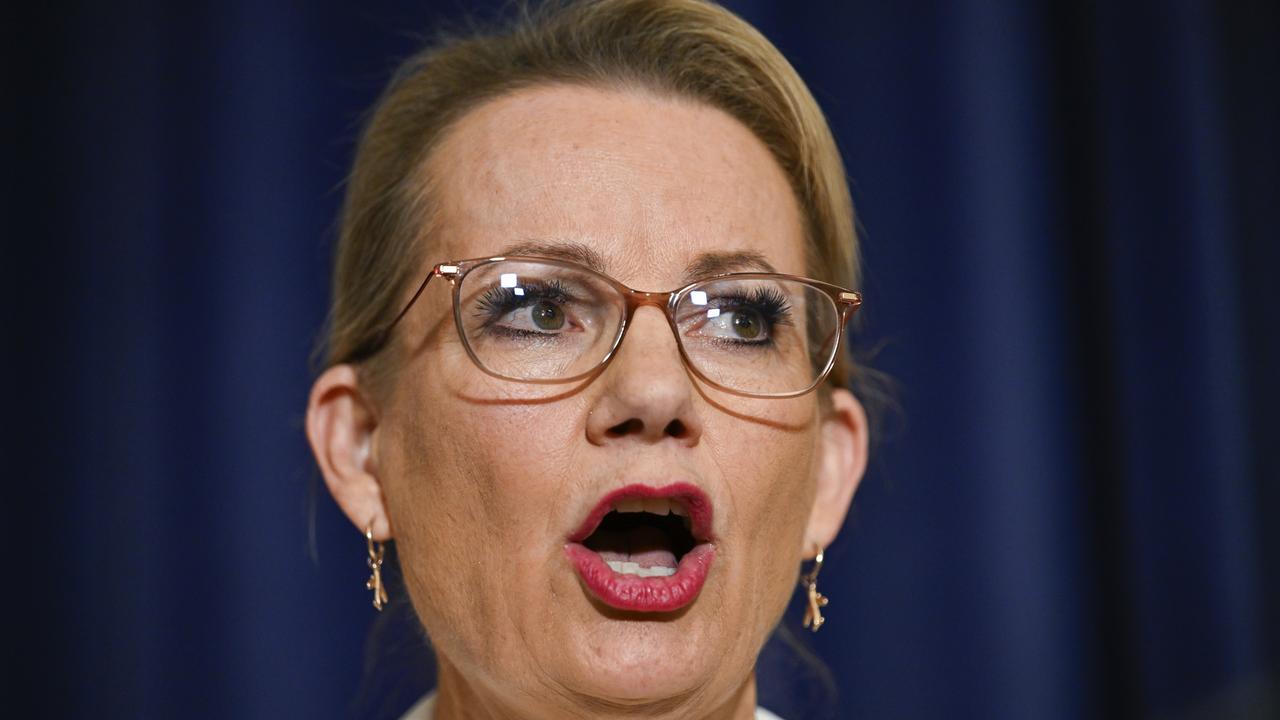Opinion: Should we be hung up on minority rule?
AUSTRALIA appears to be heading for another hung parliament after July 2. If that’s the case, should another election be called?
Analysis
Don't miss out on the headlines from Analysis. Followed categories will be added to My News.
NEWSPOLL’s most recent federal election poll contains a prophecy too little discussed in this campaign.
The June 6 survey indicates a 3.6 per cent after-preference swing against the Coalition. But with Labor’s primary vote locked in the mid 30s, strategists feel there’s too little momentum for Labor to take 76 seats. Yet, with the Coalition’s vote sliding fast – Western Australia and New South Wales spell real trouble for Turnbull – the swing looks sufficiently large to deprive the Coalition of a majority.
OFFENSIVE: Coalition attacks Labor-Greens alliance
In short, Australia appears to be heading for another hung parliament after July 2.
The question is whether Australians are prepared for another minority government – headed by Labor’s Bill Shorten or more probably Malcolm Turnbull – or would they prefer a fresh election in the hope of certainty?
History points to minority governments choosing to “muddle through” rather than head immediately back to the polls. There was little talk of a fresh election after Julia Gillard cobbled together minority government in 2010, just as there’s been scant discussion by the Palaszczuk administration. And that’s for two reasons.

First, despite some very clunky public perceptions, hung parliaments often work quite well. The ruling party’s lack of majority can offer another layer of accountability usually absent from lower houses as cabinets are forced to negotiate with crossbenchers on most or all bills. And because minority governments rarely present legislation they know will be defeated, the number of bills passed can be high. Non-government MPs also have a chance at seeing their own legislation approved. The 2010-13 House of Representatives passed over 560 bills, far more than the 400 in the 2007-10 Parliament.
Even major legislation can succeed, with the Gillard government passing the Gonski school funding, the National Disability Insurance Scheme, paid parental leave, plain packaging for cigarettes and a Murray-Darling Basin water plan.
Australia’s other famous hung Parliament, the 1940-43 House – initially under the Coalition’s Robert Menzies and Artie Fadden and, later, Labor’s John Curtin – was almost as productive. Apart from navigating our war effort, that Parliament saw Australia gain sovereignty from Great Britain under the Statute of Westminster, and allowed Canberra to establish uniform income taxation.
The second reason for avoiding fresh elections is far simpler: realpolitik means leaders usually don’t surrender the gains they have already made. Few PMs will risk – even temporarily – the keys to the Lodge, no matter what is promised to them.
But there’s a political price minority prime ministers too often have to pay. In exchange for Green support in 2010, Julia Gillard, for example, was steered into a multi-party climate change committee that, in turn, steered her into the carbon tax she so vehemently insisted would not happen under her government. That apparent breach of trust immediately vaporised all her political capital and made her re-election impossible.
Had Gillard, frustrated by her lack of majority in the days after the 2010 election, addressed the Australian people and declared she would not be cowed by minority interests, she would have appeared strong and stately and been allowed to return to the Governor-General.

Elections are expensive exercises and cajoling a largely apathetic Australian electorate back into the booths on yet another Saturday morning would still have carried some risk. But, if the United Kingdom is any guide, Gillard’s chances of winning a majority at a fresh election may have been better than anyone suspected.
In February 1974, Britain’s Conservative Heath government went to an early election it thought it could win, only to be stunned by a Labour surge that saw Harold Wilson form minority government. After an unstable eight months Wilson took Britain back to the polls and, despite rising inflation and unemployment, was rewarded with his own narrow majority.
It seems incumbency counts enormously in these circumstances but whether Turnbull or Shorten would risk a fresh election clearly depends on the level of certainty they enjoy.
With at least one in four Australian voters now opting for minor parties and Independents, hung Parliaments may well become the norm. But while Australians have little to fear from minority government, neither should prime ministers worry too much about returning to the polls.
We’re living in uncertain times; political fortunes are rewritten daily.
Dr Paul Williams is a senior lecturer at Griffith University’s School of Humanities
Twitter: @PDWilliams1
Originally published as Opinion: Should we be hung up on minority rule?


